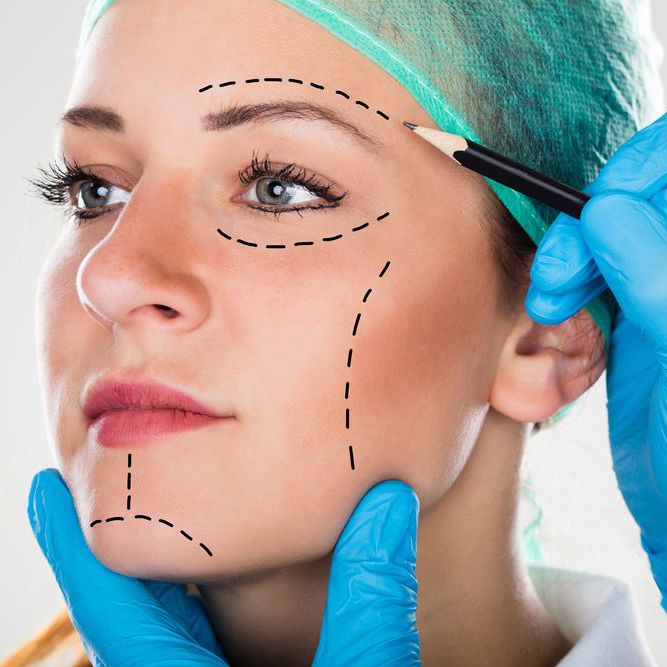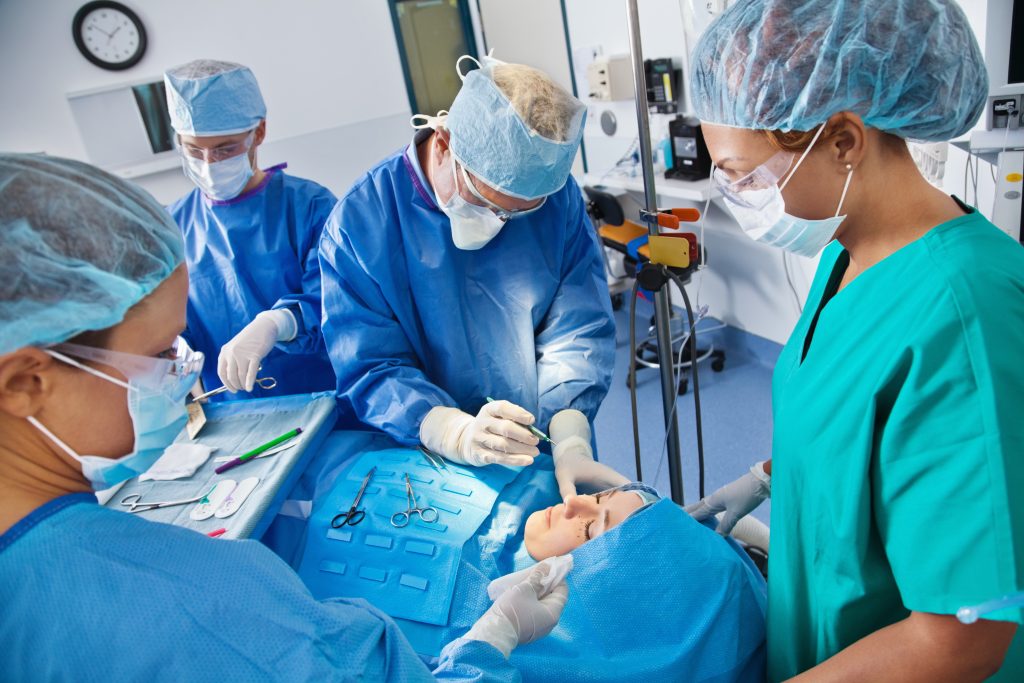Facelift Rancho Cucamonga: Reverse the Clock with Advanced Anti-Aging Solutions
Wiki Article
Examining the Mental and Social Variables That Drive Individuals to Think About Cosmetic Surgery as a way of Improvement
The choice to seek cosmetic surgical treatment frequently expands beyond mere visual appeals, intertwining with social and emotional dynamics that warrant thorough assessment. Factors such as self-esteem, pervasive societal elegance requirements, and the prevalent impact of social media merge to shape specific inspirations for surgical enhancement. As these influences come to be significantly famous, understanding the underlying cultural and psychological contexts is necessary. What stays to be discovered is the profound effect these factors have not only on individuality yet also on wider social norms and worths bordering elegance and acceptance.The Function of Self-worth
Self-confidence dramatically influences an individual's decision to seek cosmetic surgery. Individuals with low self-worth frequently view themselves in a negative light, causing feelings of inadequacy concerning their physical look. This adverse self-perception can drive them to look for surgical interventions as an approach of enhancing their self-image. The desire for enhancement in one's appearance is regularly connected to a belief that such changes will boost their general self-regard and self-confidence.
Inevitably, the role of self-esteem in the decision-making process concerning cosmetic surgery highlights the complex interplay in between body photo, individual contentment, and psychological health and wellness. Comprehending this partnership is crucial for health care professionals to guarantee that patients are making educated choices rooted in reasonable expectations and psychological well-being.
Societal Charm Criteria
Influenced by prevalent media portrayals and cultural narratives, social charm standards play a crucial function fit individuals' understandings of their very own bodies. These criteria are usually identified by an idyllic form of appeal that stresses traits such as proportion, youthful vigor, and slimness. As these ideals are bolstered via numerous networks, including advertising, television, and film, individuals often internalize these messages, bring about dissatisfaction with their natural look.The ramifications of these societal norms expand beyond visual choices; they can affect self-worth, psychological wellness, and social relationships. Individuals that view themselves as dropping short of these standards might experience feelings of insufficiency, motivating a need for cosmetic surgical procedure as a means of accomplishing social approval. This quest is often fueled by the belief that complying with these perfects will boost not just physical appearance yet additionally social standing and personal satisfaction.

Influence of Social Media
The effect of social elegance standards is further amplified by the increase of social media systems, where curated images and idyllic representations of beauty are ubiquitous. Customers are frequently revealed to filteringed system and modified photographs, which often show unattainable physical characteristics. This direct exposure grows a society of comparison, leading people to examine their very own appearance against these typically impractical criteria.
Social network influencers and stars regularly advertise cosmetic treatments, stabilizing the notion that medical enhancements are a feasible methods for attaining social perfects (plastic surgery rancho cucamonga). The presence of these enhancements can develop a perception that undergoing official statement plastic surgery is a common method, thus influencing individuals to take into consideration comparable interventions as a path to boosted self-confidence and social acceptance
Moreover, the interactive nature of social media allows for immediate responses with likes and remarks, better enhancing the wish to adhere to preferred appeal requirements. Such communications can intensify feelings of insufficiency and drive individuals towards plastic surgery as a way of acquiring validation. Eventually, social media plays a crucial duty fit assumptions of appeal, which substantially impacts the decision-making procedures surrounding cosmetic surgical procedure.

Social Viewpoints on Appearance
Throughout different cultures, assumptions of look are deeply rooted in historical, social, and financial contexts, shaping individuals' sights on beauty and value. In lots of cultures, appearance offers as a significant pen of identification, affecting social standing, expert opportunities, and individual partnerships. As an example, in some cultures, light skin is frequently related to riches and privilege, while others may glorify darker skin tones as symbols of stamina and authenticity.Moreover, typical charm criteria are typically perpetuated via cultural stories, media representations, and household affects, leading to differing ideals throughout various regions (plastic surgery rancho cucamonga). In Western cultures, the focus on youth and physical conditioning frequently drives people toward cosmetic improvement, while in certain Eastern societies, even more refined changes lined up with conventional aesthetic appeals might be preferred
Globalization and the expansion of digital media have additionally made complex these dynamics, producing a hybridization of appeal suitables that transcends geographical boundaries. As individuals significantly navigate these cultural narratives, the stress to comply with certain look standards can result in the need for plastic surgery, showing a complicated interaction of cultural worths and individual aspirations. Recognizing these social viewpoints is crucial in resolving the motivations behind cosmetic surgical treatment factors to consider.
Emotional Influences of Aesthetic Surgery
Many people seeking cosmetic surgical procedure report experiencing profound psychological influences that can dramatically modify their self-perception and psychological wellness - plastic surgery rancho cucamonga. The desire for physical improvement usually originates from underlying problems such as low self-confidence, body address dysmorphic disorder, or social stress relating to charm standards. For some, the instant post-operative phase can cause a momentary increase in positive self-image and contentment with their appearance, cultivating a feeling of empowerment
However, these positive feelings might not be enduring. Research indicates that while some patients experience boosted self-worth, others may face increased anxiety or depression if their expectations are not met. This inconsistency can occur from unrealistic ideals perpetuated by media depiction and social stories bordering charm.
Additionally, the psychological ramifications of cosmetic surgical treatment prolong past the person. Relationships with friends and family may be strained as social characteristics shift, leading to sensations of seclusion or alienation. Ultimately, the emotional impacts of cosmetic surgical procedure are multifaceted and complicated, calling for mindful consideration by both potential individuals and medical care companies to make certain informed decision-making and reasonable assumptions.
Verdict
Finally, the decision to seek cosmetic surgical treatment is dramatically influenced by a combination of self-worth issues, social elegance criteria, and social viewpoints on appearance. The pervasive reach of social media even more exacerbates these pressures, advertising impractical ideals that individuals commonly aim to attain. Recognizing these social and psychological factors is essential for dealing with the motivations behind cosmetic surgery, highlighting the need for a more nuanced conversation bordering appeal and self-acceptance in modern society.The decision to pursue cosmetic surgery often extends past plain appearances, linking with emotional and social dynamics that merit comprehensive evaluation. Ultimately, social media plays a pivotal function in forming assumptions of appeal, which significantly influences the decision-making processes this content surrounding cosmetic surgical procedure.
As individuals significantly navigate these cultural stories, the pressure to adjust to particular appearance criteria can lead to the need for cosmetic surgical procedure, reflecting a complicated interplay of individual aspirations and social values.In verdict, the decision to seek cosmetic surgical treatment is significantly affected by a combination of self-worth concerns, societal elegance requirements, and cultural viewpoints on appearance. Understanding these social and mental aspects is crucial for attending to the inspirations behind cosmetic surgical procedure, highlighting the need for an extra nuanced conversation surrounding appeal and self-acceptance in contemporary society.
Report this wiki page